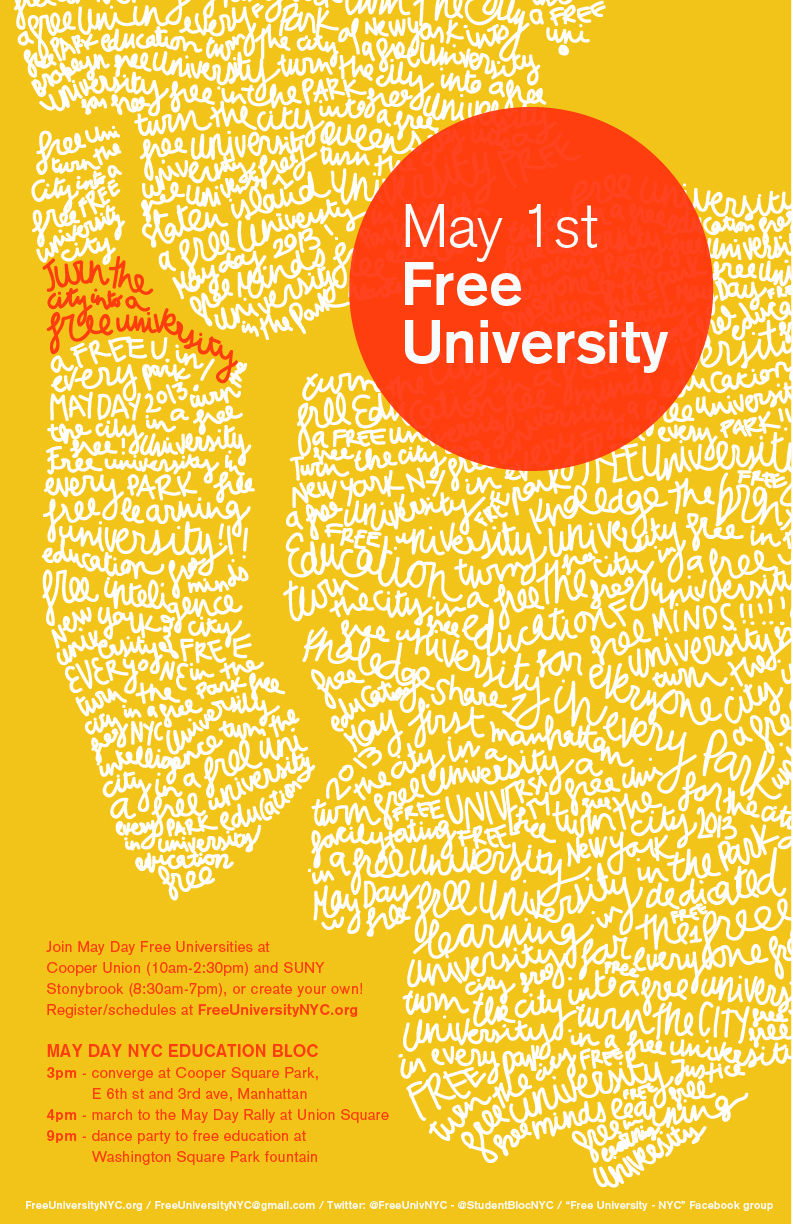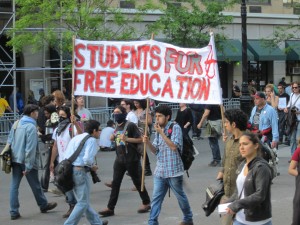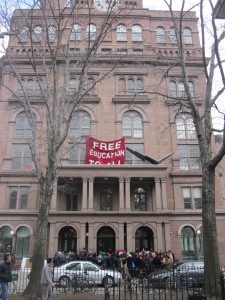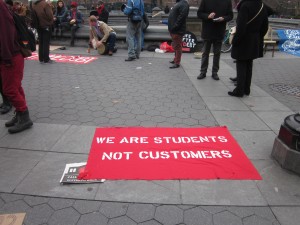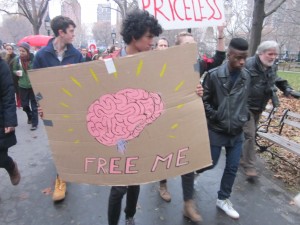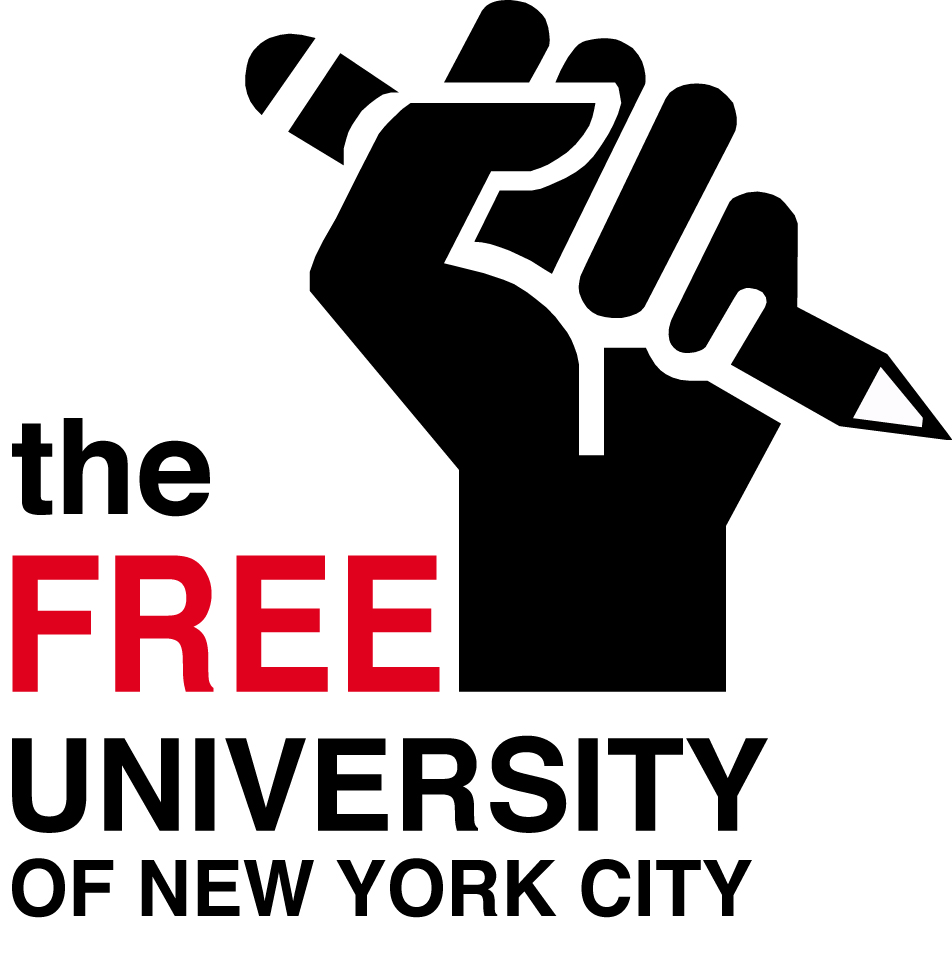Author Archives: Gregory Rosenthal
Book Review: Chase Madar, The Passion of Bradley Manning

With the recent news that Private First Class Bradley Manning has pled guilty to releasing U.S. classified documents to Wikileaks in early 2010, I thought it fitting that I should come upon a free copy of a recent book about Manning in my university department’s common area. Chase Madar’s The Passion of Bradley Manning (rev. ed.; Verso, 2013) is not just a biography of Manning, but also a critical analysis of the political and legal issues related to Manning’s release of classified materials as well as the U.S. government’s torture, imprisonment, and systematic defamation of Manning. Continue reading
May Day in America
[The Free University of NYC was born out of calls for a General Strike on May 1, 2012. Right now we are cooking up plans for May Day 2013, and we invite you to get involved with the planning process. See the meeting minutes and events pages on this website for more information about the planning process. In the meantime, here is a short essay on the history of May Day in America. With deep respect, Gregory.]
Minutes: March 2, 2013
Meeting minutes from the general meeting of the Free University of NYC at 60 Wall Street, March 2, 2013, 1-3pm:
Agenda:
-vote on May Day proposal
-read through/edit the May Day “pitch”
-status of Free U “toolkit”?
-status of alternative budget project?
Comments Off on Minutes: March 2, 2013
Posted in Minutes
Minutes: February 24, 2013
Meeting minutes from the open meeting of the Free University of NYC at 60 Wall Street, February, 24, 2013, 1-3pm:
Plan for March 14? There doesn’t seem to be much happening locally in support of the call from Students for a Democratic Society [SDS]/Occupy Colleges for a National Day of Action to Defend Public Education. The event is scheduled for Thursday, March 14. We have discussed this event over the course of several meetings now, and have no position/plan of action for the day. See here for the national call: http://www.defendeducationday.org/) Continue reading
Comments Off on Minutes: February 24, 2013
Posted in Minutes
“We Will Not Defer to You, Jamshed”: Deferred Applicants Speak out at the Cooper Union
Students at the Cooper Union for the Advancement of Science and Art in New York City unfurled a “Free Education to All” banner from a third story window today as about one hundred students, faculty, and supporters demonstrated below. The event was just one of many in what is an ongoing struggle over whether or not to institute tuition at the historically free university. Many folks involved in the Free University of NYC were there today to show our solidarity, as we have before and will continue to do until the Cooper Union affirms its historic mission to provide an education that is as “free as air and water.” Continue reading
Comments Off on “We Will Not Defer to You, Jamshed”: Deferred Applicants Speak out at the Cooper Union
Posted in Blog Post
Tagged cooper union, tuition
A Tale of Two Divestment Campaigns
This week, I attended two completely different lectures about divestment. I’m not a finance guy. I don’t really know anything about investment or divestment; indeed, I have never invested a dime of my money in anything (unless you include donations to radical organizations or contributions made to Kickstarter projects). But, as I learned this week, many of the organizations, corporations, and institutions we interact with—and sometimes even identify with, and sometimes put our own money into—invest. And it behooves us to “follow the money,” so to speak, and to seek greater participation in determining exactly how and where our money is spent. Continue reading
Comments Off on A Tale of Two Divestment Campaigns
Posted in Blog Post
Tagged academic freedom, climate change, divestment, environment, Israel, Palestine, racism
Be the MOOC resistance
Yesterday I was blindsided by an email. It was from the Provost of our university (where I am both a graduate student and a teaching assistant). The email began with this ominous line: “the rampant emergence of massive open online courses (MOOCs) are creating the perception of a game-changing, disruptive educational approach that has the potential to transform both access to education as well as the methods we use to teach our own students and the world.” It went on to say other things, but let’s stick with this troubling sentence for a moment.
First of all, the Provost has done an excellent job scaring students and faculty. MOOCs are “rampantly” “emerging,” he says. This makes it sound like MOOCs possess an agency all their own, as if they are rising up out of the shadows to take control of our universities. In other words, the sentence does not identity the true agents behind the “rampant emergence” of MOOCs: on the one hand, wealthy, private, and prestigious universities like Stanford and MIT; and, on the other hand, for-profit corporations like Coursera, and get this, even a for-profit company founded by a Stanford University professor, Udacity. The university-industrial complex in all its glory.
The point is: it’s not just that MOOCs appeared out of nowhere. They are the product of certain people with certain ideas (and entrepreneurial ambitions), and we must take a critical look at their motivations. Continue reading
The “State” of Higher Education
Here in New York, we are in the midst of a heated debate over “academic freedom.” The Brooklyn College Students for Justice in Palestine, a student club, has organized an event for Thursday, Feb. 7, to discuss the Boycott, Divestment, and Sanctions (BDS) movement. BDS is a non-violent movement against the Israeli occupation of Palestine.
In recent weeks, numerous ideologues and politicians in and outside of our city have come out in opposition to this event. Specifically, what many oppose is the “sponsorship” of the event by the college’s Political Science department. Others contend that even just by providing space for this event without providing equal space to those with opposing viewpoints—a spurious charge easily refuted by college officials and faculty who have rolled off their tongues the names of pro-Israel speakers invited to speak at the college—that the college administration itself, even the college president, are guilty of “endorsing” the views of the BDS movement.
The Free University of NYC has not formally weighed in on this debate. What I’d like to point out here, then, is the diversity of views that many of us hold regarding one central actor in this debate: the state. Continue reading
Comments Off on The “State” of Higher Education
Posted in Blog Post
Tagged academic freedom, public education, the state
“Like a Free U, But in a Church”: The People’s Recovery Summit
Several of us in the Free University of NYC have also been involved with the People’s Recovery Summit, a three-day happening at The Church of St. Luke and St. Matthew in Brooklyn this weekend (Feb. 1-3). Conversations at the Summit revolve around five themes: Education, Environment, Economics, Organizing, and Wellness. The overarching question is: in the wake of Hurricane Sandy, how can we rebuild NYC in a way that is more just, more fair, and more democratic?
It is cold inside the church, but the presence of so many warm bodies eases the chill. Downstairs, breakfast, lunch, and dinner are served and shared in a large community dining room. The People’s Library (still overflowing with books from Occupy Wall Street) is here. Continue reading
Comments Off on “Like a Free U, But in a Church”: The People’s Recovery Summit
Posted in Blog Post
Tagged occupy sandy, people's recovery

